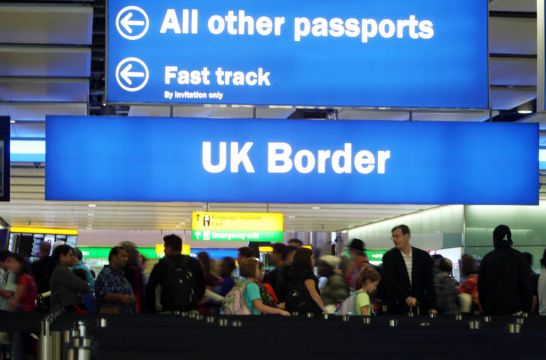Beijing has condemned Covid-19 testing requirements imposed on passengers arriving in some countries from China and threatened counter-measures against countries involved, which include the US, the UK and several EU nations.
“We believe that the entry restrictions adopted by some countries targeting China lack scientific basis, and some excessive practices are even more unacceptable,” Foreign Ministry spokesperson Mao Ning said.
“We are firmly opposed to attempts to manipulate the Covid measures for political purposes and will take counter-measures based on the principle of reciprocity.”
Australia and Canada this week joined a growing list of countries requiring travellers from China to take a Covid-19 test before boarding their flight, as the country battles a nationwide outbreak of coronavirus after abruptly easing restrictions that had been in place for much of the pandemic.

Nations including the US, the UK, India, Japan and several European nations have announced tougher measures on travellers from China amid concerns over a lack of data on infections in the country and fears that new variants may emerge.
French Prime Minister Elisabeth Borne defended the tests, saying: “We are in our role, my government is in its role, protecting the French.”
Starting on Wednesday, anyone flying from China to France will have to present a negative virus test taken within the previous 48 hours and be subject to random testing on arrival.
Some Canadian experts have questioned the effectiveness of the testing. Kerry Bowman, assistant professor at the University of Toronto’s Temerty Faculty of Medicine, said people can test positive long after entering the country.
The requirement is “not based on science at this point”, he said after Canada announced measures last weekend.
China, which for most of the pandemic adopted a zero-Covid strategy that imposed harsh restrictions aimed at stamping out the virus, abruptly eased the measures in December.
Authorities had previously said that from January 8, overseas travellers would no longer need to quarantine on arriving in China, paving the way for Chinese residents to travel.
The EU said later that it had offered China help to deal with its Covid-19 crisis, including the donation of vaccines.
Over the past week, EU nations reacted in a series of national measures to the crisis in China, disregarding an earlier commitment to act in unity.
The #SARSCov2 variants circulating in China are already circulating in the EU, and as such are not challenging for the immune response of EU/EEA citizens. In addition, EU/EEA citizens have relatively high immunisation and vaccination levels. pic.twitter.com/Ja3DOpanKW
— ECDC (@ECDC_EU) January 3, 2023
Advertisement
Italy was the first to require coronavirus tests for airline passengers arriving from China, but several others said such measures might not be the best option to protect local populations since new variants coming from China have already been around in Europe, often for many months.
France, Spain and Italy have already announced tougher measures for passengers arriving from China.
France’s government is requiring negative tests, and is urging French citizens to avoid non-essential travel to China. France is also reintroducing mask requirements on flights from China to France.
Spain’s government said it would require all air passengers coming from China to have negative tests or proof of vaccination.
The European Centre for Disease Prevention and Control insisted that the situation in China does not pose an immediate overall threat to health, adding: “The variants circulating in China are already circulating in the EU, and as such are not challenging for the immune response” of EU citizens.
But medical experts from EU member states were already preparing potential action to be taken up by an Integrated Political Crisis Response meeting, where measures like EU-wide entry requirements could be decided.
“Travellers from China need to be prepared for decisions being taken at short notice,” warned Sweden, which holds the EU presidency.
The European Commission said on Tuesday that the bloc had contacted Beijing in the last few days to offer help, including expertise, medical information and vaccine donation.







